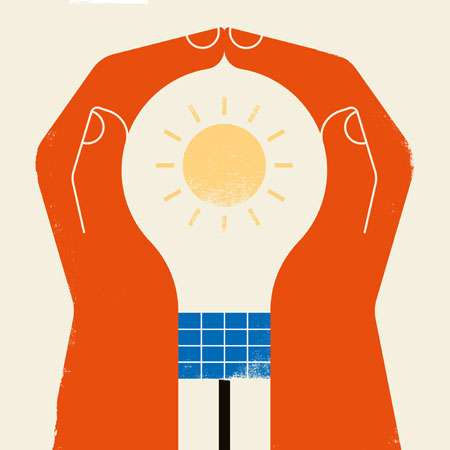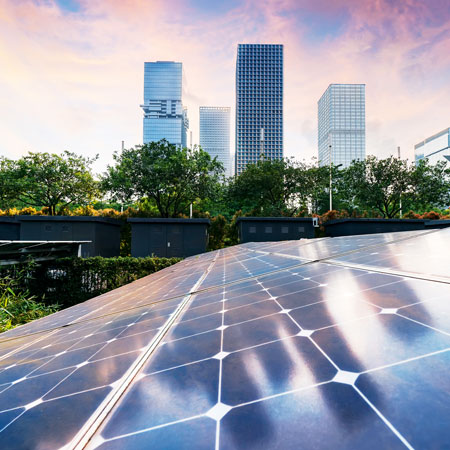Clean tech: 3 pioneers greening real estate
How the industry is harnessing the power of clean tech to reduce its environmental impact.
Clean tech refers to the technologies that seek to reduce the environmental impact of human activities, to significantly reduce the consumption of natural resources, or to mitigate the effects of climate change. This encompasses a range of technologies, including renewable energy, waste management or industrial process improvements.
Investor interest in the sector has grown rapidly. In 2020 it accounted for 11% of total global venture capital investment, up from 5% in 2015. Investors are allocating $3.8 million to each deal, 30% more than the all-sector average.
The built environment is responsible for 39% of all carbon emissions, so real estate has to be part of the solution, whether it is reducing the operational emissions of buildings – which make up 28% of global emissions – or the embodied carbon emissions in a building, which account for the remaining 11% (data from the International Energy Agency).
We talk to the founders of three platforms that are bringing fresh ideas and clean tech to real estate…
Redistribute and reuse
May Al-Karooni, CEO and founder, Globechain
Around five years ago, the bank I worked for was moving to offices just across the road. The facilities management team asked what people wanted for their new workstations, and I wondered why we didn’t just move the existing chairs and desks with us. I thought it was crazy – not just the waste, but the cost, too.
So I created Globechain, a B2B reuse marketplace to link companies with other businesses, charities and individuals to make unwanted construction and fit-out materials available to those who need them.
We also track where everything goes for companies’ ESG data. During the past three years we have saved 7,300 tonnes from landfill, but that is a drop in the ocean of worldwide waste.
Smarter deliveries
Tom Selva, CEO and founder, Mayordomo Smart Point
Having deliveries at your fingertips comes at a cost. Around half the carbon generated by the delivery of goods from manufacturer to consumer is generated by the last mile of delivery. Mayordomo uses artificial intelligence and the Internet of Things to reduce the impact of that delivery.
Our Smart Points are intelligent lockers which can be located in the shared spaces of an office or residential building. From here, occupants can manage deliveries and pickups from any courier or business.
The data we collect is used to manage deliveries and collections more efficiently across multiple buildings, which saves journeys and reduces cost and emissions. We estimate that each Smart Point saves 5.4 tonnes of carbon a year. These systems gain the best economies of scale across a city. We have agreed city-wide networks with five major European cities in order to create public-private collaborations towards a zero-emission delivery network.
Good in 2050 means zero-emission delivery of any goods or service at a lower cost and higher convenience to users.
Thinking houses
Daniel Burton, CEO and founder, Wondrwall
Buildings are the largest energy consumers in Europe, generating more than a third of greenhouse gases. They must become more efficient if we are to make our economies carbon net zero.
Our approach is to give the home a brain. For example, our light switches house 13 different sensors that collate behavioural information. AI-powered machine learning combines this data with external information, such as time of electricity use, electricity costs and weather forecasts, to intelligently light and heat the home in the most energy and cost-effective way. The system integrates solar panels, batteries and efficient heating panels which together can reduce energy bills for the average UK home by up to 90%.
This kind of technology can help housebuilders and social housing providers meet ESG targets. These systems are most effective when installed as part of a new build, however we are seeing more retrofitting to existing homes.
By 2050 we’d like to see intelligent homes become the norm, which will substantially reduce domestic energy use.



